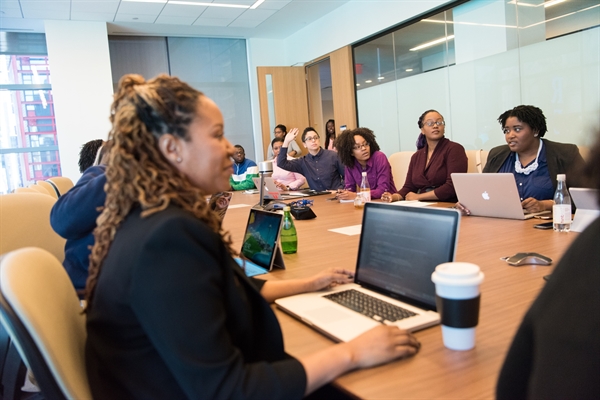The start of 2019 has been incredibly exciting at the City Mental Health Alliance (CMHA). The year ahead promises to be very busy and hopefully very rewarding with 14 events already planned across the UK and several exciting new initiatives we are working on.
Putting mental health on the global agenda
This year mental health was, for the first time, high up on the agenda at the World Economic Forum’s (WEF) annual meeting in Davos. The CMHA worked closely with the WEF and other partners to maximise this opportunity to inspire business leaders to create mentally healthy workplaces. As part of this, we gave all our members the opportunity to contribute to the mental health programme at Davos.
I am proud to say that John Flint, CEO of HSBC – one of CMHA’s member firms – took part in a pioneering panel discussion alongside the Duke of Cambridge, Jacinda Ardern- Prime Minister of New Zealand, Dixon Chibanda – director of the African Mental Health Research Initiative and Bernard Tyson – CEO of Kaiser Permanente. The hour-long panel discussion was inspirational, with all panellists speaking openly and honestly about their organisations’ approaches to mental health as well as sharing their own mental health experiences.
John Flint shared his desire for HSBC to have the “healthiest, human system ” in the financial services industry. A key point John made was how global organisations need to be respectful to local cultures and communicate across global organisations.
If you missed the panel you can watch it here .
Communicating globally
John’s comments reflect the international work we are doing at the CMHA.
Firstly, we are always looking for ways we can help our members outside the UK . We have seen increasing demand from our members to have support in other key financial centres which would benefit from having a CMHA framework in the future. To address this, we are connecting with other major cities across the world. CMHA Hong Kong , for example, has developed its own evidence-based workplace mental health training which is now being offered to Hong Kong members – many of which are also UK members. To take this work further, we are having productive and exciting conversations with several global multi-nationals about supporting them across different countries.
Secondly, we assist our members to understand how best to communicate their approach to mental health globally . As John outlined on the panel, the global conversation about mental health must be thought about carefully. The CMHA has had a fantastic response in the UK. However, as we expand, we need to be sensitive to the fact that in some key markets, cultural and religious considerations mean that mental health stigma is even more of a challenge than we have experienced in the UK. This is a critical conversation to explore and one we think that the CMHA is uniquely positioned to help move forward.
We believe our work, and the work of our members is critical to ensuring we create mentally healthy workplaces across the world where people can flourish. To address stigma, and to change the way society, governments, education and workplaces respond to mental illness, we need to create a global movement that includes awareness campaigns, public education, guides on changing practice and even more evidence on what works. We can only achieve that kind of change by working together. Businesses have a significant role to play in the drive for change.
I, therefore, want to say a huge thank you to everybody who has contributed to the success of the CMHA so far and to encourage everyone to continue to help us try to “make tomorrow a little bit better than today ”.





